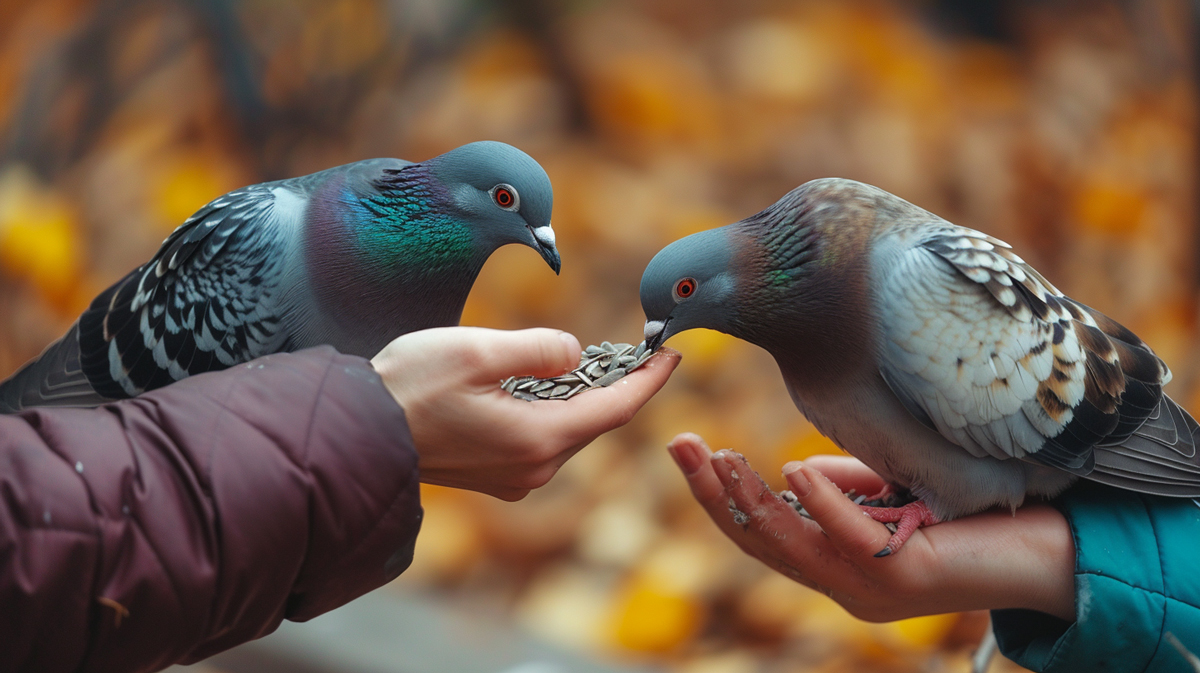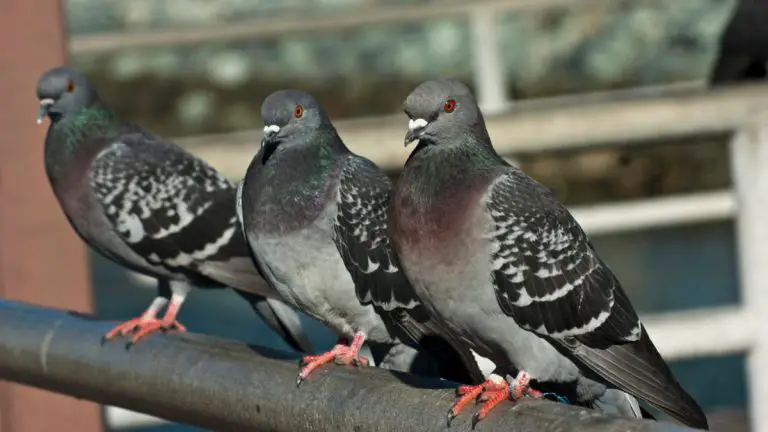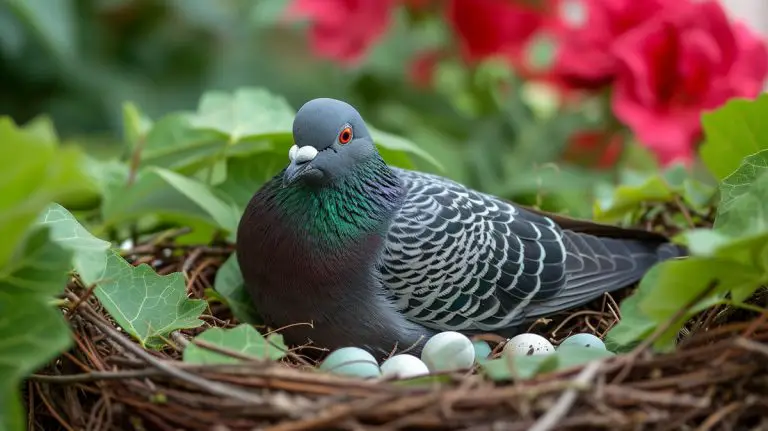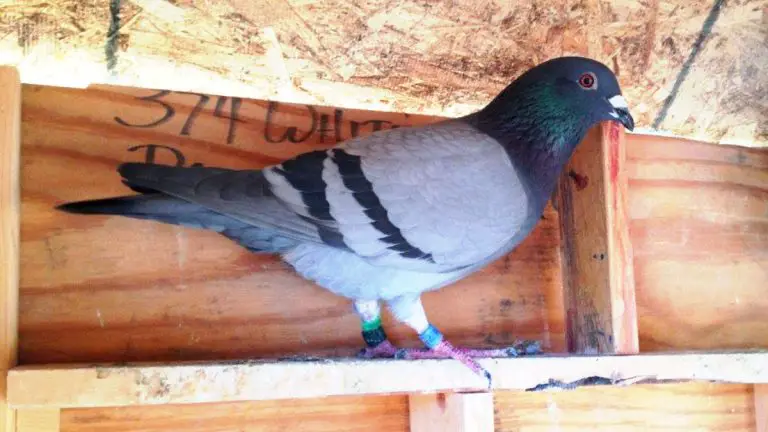Pigeon Feeding Schedule: Optimize Their Health
Are you a pigeon enthusiast looking for the best way to feed your feathered friends? Look no further, because in this article, I’ll be sharing with you the ultimate feeding schedule for pigeons. As an experienced pigeon lover myself, I understand the importance of providing a balanced diet to keep these birds healthy and happy. With a proper feeding schedule, you can ensure that your pigeons receive the right nutrients at the right times, promoting their overall well-being and longevity. So, let’s dive in and discover the secrets to keeping your pigeons well-nourished and thriving.
Importance of a proper feeding schedule
Feeding pigeons is not just about tossing them some breadcrumbs. It is important to establish a proper feeding schedule to ensure their health and well-being. As an experienced pigeon lover, I understand the significance of providing pigeons with the right nutrients at the right times. Let me share with you the importance of a proper feeding schedule for these birds.
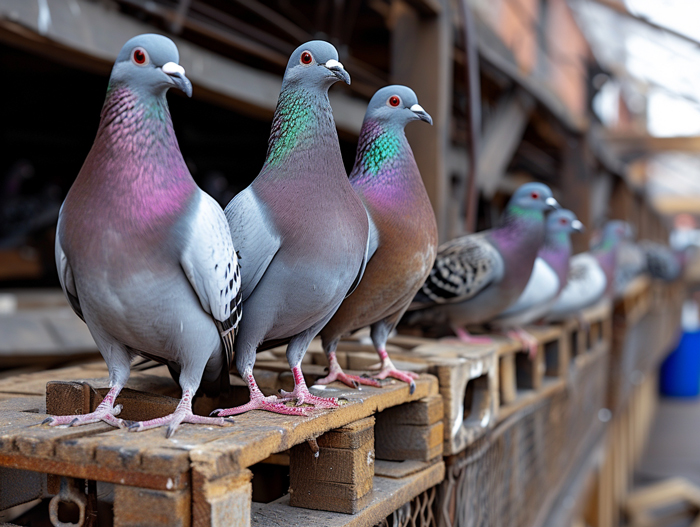
1. Optimal Nutrition
Establishing a feeding schedule ensures that pigeons receive optimal nutrition on a regular basis. Pigeons require a balanced diet that includes a variety of grains, seeds, and protein sources. By adhering to a feeding schedule, you can ensure that they receive the necessary nutrients to support their growth and vitality.
2. Consistent Energy Levels
Just like humans, pigeons need a consistent source of energy throughout the day. By following a feeding schedule, you can provide them with regular meals that maintain their energy levels. This is particularly important during breeding and racing seasons when pigeons require extra fuel to perform at their best.
3. Prevention of Obesity and Malnutrition
Without a proper feeding schedule, it is easy for pigeons to overeat or under eat, leading to obesity or malnutrition. Overfeeding can lead to health issues such as joint problems and heart disease, while underfeeding can result in poor growth and weakened immune systems. A well-structured feeding schedule helps regulate their food intake, preventing these problems.
4. Bonding and Training
Feeding pigeons according to a schedule not only ensures their physical well-being, but also strengthens the bond between you and the birds. Pigeons are intelligent creatures and thrive on routine. By feeding them consistently at the same times each day, you establish trust and familiarity, making them easier to train and handle.
5. Disease Prevention
A proper feeding schedule can play a vital role in preventing the spread of diseases among pigeons. By regularly cleaning and providing fresh food, you reduce the risk of contamination, ensuring a healthier environment for your pigeons. Additionally, a scheduled feeding routine allows you to monitor their appetite and behavior, enabling early detection of any potential health issues.
Understanding the dietary needs of pigeons
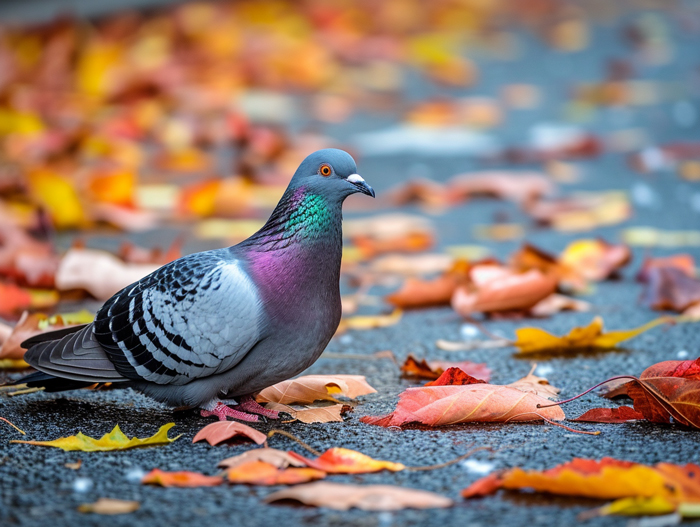
Feeding pigeons is not just about randomly scattering seeds here and there. It’s important to understand their unique dietary needs to ensure they receive the proper nutrition for their well-being. In this section, I’ll delve into the key aspects of a pigeon’s diet and what you should keep in mind when feeding these intelligent birds.
- A balanced diet for optimal health:
Pigeons require a balanced diet that includes a variety of grains, seeds, and legumes. This ensures they receive essential nutrients like protein, carbohydrates, and vitamins necessary for their overall health. Providing a mix of these foods helps prevent any nutrient deficiencies and keeps your pigeons in peak condition. - Energy requirements:
Pigeons are active birds, constantly flying and exploring their surroundings. Therefore, it’s crucial to provide them with enough energy to support their active lifestyle. Including energy-dense foods such as corn, peas, and sunflower seeds in their diet helps meet their high energy requirements. Remember, a well-fed pigeon is a happy and energetic pigeon! - Water, a vital component:
Water is a crucial element in a pigeon’s diet. Keeping your feathered friends hydrated is essential for their overall health and digestion. Ensure they have access to fresh, clean water at all times. Adding a shallow dish or a birdbath to their living area is a great way to encourage them to drink water regularly. - Nutritional supplements:
Sometimes, providing a variety of seeds and grains may not be enough to meet all of your pigeon’s nutritional needs. In such cases, it may be beneficial to incorporate certain nutritional supplements into their diet. These supplements can include essential vitamins and minerals to ensure your pigeons receive everything they need to stay healthy.
By understanding the dietary needs of pigeons and providing them with a well-balanced and nutritious diet, you can ensure their overall health and well-being. Now that we have explored the importance of a proper diet, let’s move on to the next section – establishing a feeding schedule for pigeons.
Morning feeding routine
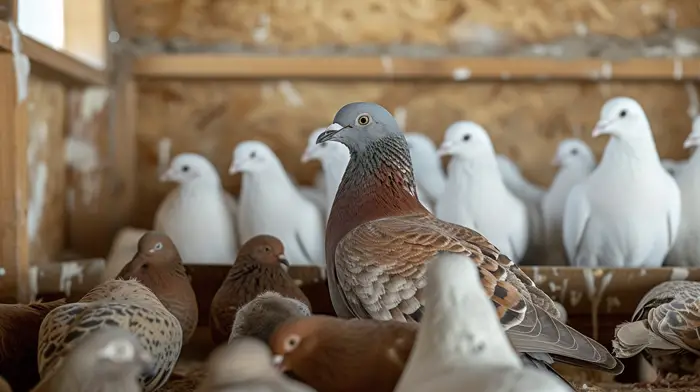
In the morning, I start the day by following a consistent feeding routine for my pigeons. It’s important to establish a regular schedule to ensure their well-being and keep them healthy. Here’s a look at my morning feeding routine:
- Check the fresh water supply: The first thing I do is check the water bowls or containers to make sure they are clean and filled with fresh water. Pigeons rely on clean water for hydration, digestion, and overall health. I have observed that pigeons drink more water in the morning, so it’s essential to provide them with a fresh supply.
- Provide a variety of grains: I believe in offering my pigeons a variety of grains to meet their nutritional needs. I include grains like wheat, corn, barley, and millets in their morning feed. These grains provide essential carbohydrates and energy for the active lifestyle of pigeons.
- Offer seeds and legumes: In addition to grains, I also include seeds and legumes in their morning feed. This provides a good source of protein, essential fatty acids, and other important nutrients. Some of the seeds and legumes that I offer include sunflower seeds, peas, lentils, and soybeans.
- Supplement with vitamins and minerals: To ensure that my pigeons are getting all the necessary nutrients, I sometimes add a pigeon-specific vitamin and mineral supplement to their morning feed. This helps to maintain their overall health and support their immune system.
- Observe their feeding behavior: While my pigeons are eating, I always keep an eye on their feeding behavior. This allows me to ensure they are eating well and identify any changes in their appetite or behavior that could indicate a health issue.
Remember, having a consistent morning feeding routine is key to keeping your pigeons healthy and happy. By providing a balanced diet of grains, seeds, legumes, and supplements, you can ensure that your pigeons are getting all the essential nutrients they need for a thriving life.
Afternoon feeding routine
Now that we have established the importance of a consistent morning feeding routine for pigeons, let’s delve into their afternoon feeding routine. Just like humans, pigeons require regular meals throughout the day to maintain their health and vitality.
Key Considerations for the Afternoon Feeding Routine:
- Variety of Food: Providing a diverse range of grains, seeds, and legumes is crucial for pigeons’ nutritional needs. Aim to offer a mix of options, including corn, millet, wheat, barley, and peas. This ensures that the pigeons receive a balanced diet that meets their dietary requirements.
- Clean Water: Alongside a diverse diet, clean and fresh water is essential for pigeons’ overall well-being. Make sure to regularly refill the water containers, ensuring they are free from contaminants. Pigeons need access to water for drinking and bathing, which aids in maintaining their feather health.
- Feeder Placement: Consider the placement of pigeon feeders in the afternoon. Locate the feeders in a quiet and calm area, away from noisy distractions. This will encourage the pigeons to feed peacefully, reducing stress and promoting a healthy feeding routine.
- Observing Feeding Behavior: As with the morning feeding routine, it’s essential to observe the pigeons’ feeding behavior during the afternoon. Look out for any signs of abnormalities or changes in appetite, as this could indicate potential health concerns. By monitoring their feeding habits regularly, you can ensure their well-being.
By following these considerations, you can maintain a robust and effective afternoon feeding routine for your pigeons. Remember, consistency is key. Ensuring regular meals that are nutritionally balanced and providing clean water will contribute to the overall health and vitality of your feathered friends.
Now that we’ve covered the afternoon feeding routine, we’ll dive into another crucial aspect of pigeon care in the next section. Stay tuned to learn more about creating an appropriate sleeping environment for pigeons.
Evening feeding routine
In the evening, I continue the feeding routine for pigeons to ensure their proper nutrition and well-being. Here are some key aspects of the evening feeding routine that you should consider:
- Variety of Food: To keep the pigeons healthy and satisfied, it’s important to provide a diverse range of food options. I offer a combination of grains, seeds, and legumes to give them a balanced diet.
- Clean Water: Just like in the morning, ensuring a fresh and clean water source is crucial for the pigeons’ hydration. I make sure to provide them with clean water every evening.
- Feeder Placement: The placement of the feeders is also important during the evening feeding. I ensure they are positioned in a quiet and secure area, away from any potential disturbances or predators.
- Observing Feeding Behavior: Another essential aspect during the evening feeding routine is to monitor the pigeons’ feeding behavior. By paying attention to how they eat, I can detect any changes in appetite or unusual patterns that may indicate a health issue.
Remember, a consistent and balanced feeding routine plays a crucial role in the well-being of pigeons. By following these guidelines, you’ll be able to provide them with the nourishment they need.
Treats and supplements for pigeons

Feeding pigeons a balanced diet is essential for their overall health and well-being. In addition to their regular meals, treats and supplements can be included in their diet to provide additional nutrition and variety. Here are some important points to consider when it comes to treats and supplements for pigeons:
1. Treats:
- Treats can be given in moderation to pigeons, as a way to provide enrichment and mental stimulation.
- The treats should be pigeon-safe and nutritious, offering additional vitamins, minerals, and other beneficial nutrients.
- Examples of pigeon treats include dried fruits, nuts, and seeds. These treats can be added to their regular diet or provided separately as a special reward.
2. Supplements:
- Supplements play a role in ensuring that pigeons receive all the necessary nutrients for optimal health.
- Vitamin and mineral supplements can be added to the pigeon’s food to boost their nutrient intake.
- It’s important to consult with a veterinarian or an avian expert to determine the appropriate supplements and dosage for your pigeons.
3. Water:
- Access to clean and fresh water is crucial for pigeons’ health and digestion.
- Ensure that the water is changed regularly to prevent contamination and bacterial growth.
- Consider using a water additive that contains electrolytes and vitamins to support hydration and overall wellness.
Remember, treats and supplements should complement an already balanced diet. They should not replace the basic nutritional needs that pigeons receive from their main meals. Regular observation and monitoring of your pigeons’ behavior and health is key to ensure they have a well-rounded diet and are thriving.
Next, I will discuss the importance of creating an appropriate sleeping environment for pigeons, an aspect that is often overlooked but crucial for their well-being.
Data:
| Treats for Pigeons | Examples |
|---|---|
| Dried fruits | Raisins, dates, cranberries |
| Nuts | Almonds, walnuts, peanuts |
| Seeds | Sunflower seeds, pumpkin seeds, flaxseeds |
| Supplements for Pigeons | Types |
|---|---|
| Vitamin supplements | Vitamin A, B, E, and D |
| Mineral supplements | Calcium, phosphorus, iron |
Watering schedule for pigeons
When it comes to ensuring the well-being and health of pigeons, a proper watering schedule is just as crucial as a consistent feeding routine. Providing clean and fresh water is essential for pigeons to stay hydrated and maintain their overall health. Here are a few key points to consider when establishing a watering schedule for pigeons:

1. Access to Fresh Water
Pigeons should have access to clean and fresh water at all times. Regularly check their water source to ensure it is clean and free from contaminants. If the water becomes dirty or contaminated, it should be replaced immediately. Remember, pigeons drink a considerable amount of water every day, so it’s essential to keep their water source fresh and available.
2. Water Containers
You’ll need to choose suitable water containers for your pigeons. Make sure they are sturdy, easy to clean, and large enough to accommodate multiple pigeons at once. Also, consider providing water containers that allow pigeons to drink without getting their feathers wet, as wet feathers can lead to health issues.
3. Location and Accessibility
Place the water containers at a convenient and easily accessible location in the pigeons’ living area. They should be positioned in a way that pigeons can drink comfortably without any obstacles. It’s also important to ensure that the water containers are secure and cannot be easily overturned.
4. Changing Water Regularly
Regularly changing the water in the containers is crucial to maintaining a healthy watering schedule for pigeons. Aim to change the water at least once or twice a day, depending on the weather conditions and the number of pigeons you have. Hotter weather may require more frequent water changes to prevent it from becoming warm or stagnant.
5. Monitoring Water Consumption
Observing the water consumption of your pigeons is essential for determining their hydration levels and overall health. Pay attention to any sudden decrease in water intake, as it may indicate a health issue that requires attention. On the other hand, a significant increase in water consumption can be a sign of dehydration or other health problems.
By implementing a well-planned watering schedule for your pigeons, you can ensure they stay hydrated and healthy. Remember to provide clean and fresh water, choose suitable water containers, position them conveniently, change the water regularly, and monitor your pigeons’ water consumption.
Adjusting the feeding schedule based on seasons
Now that we have established the importance of a consistent feeding routine for pigeons, it is essential to address the need for adjusting their feeding schedule based on the changing seasons. As the weather and environmental conditions shift throughout the year, it is crucial to provide pigeons with the appropriate nutrition to support their well-being.
Understanding Seasonal Changes:
Each season brings unique challenges and requirements for pigeons. By adjusting their feeding schedule, we can ensure that they receive the necessary nutrients to maintain optimal health. Here are some key considerations for feeding pigeons during different seasons:
1. Spring:
During the spring season, pigeons are more active as they engage in courtship and breeding. To support their increased energy requirements, it’s important to provide a slightly higher quantity of food. Additionally, offering protein-rich foods such as legumes and insects can help enhance their overall reproductive health.
2. Summer:
The hot summer months pose challenges for pigeons as they need to stay hydrated and cool. Adjusting the feeding schedule to offer smaller meals throughout the day, especially during the cooler morning and evening hours, helps pigeons cope with the heat. Including cooling treats like fresh fruits and vegetables can also help keep them hydrated.
3. Fall:
As the weather starts to cool down, it’s crucial to provide pigeons with a variety of grains and seeds to help them build up their fat reserves for the upcoming winter months. Adding nutritious supplements, such as those rich in vitamins and minerals, can support their immune system during this transitional period.
4. Winter:
During the winter season, pigeons require extra energy to stay warm. Increasing their feed intake and including high-energy foods like sunflower seeds and peanuts helps meet their energy needs. It’s important to provide these hearty meals in the morning to give pigeons enough time to digest and utilize the nutrients throughout the day.
By adjusting the feeding schedule accordingly, we can ensure that pigeons receive the right nutrients at the right times, maximizing their health and well-being throughout the year. Remember that observing the behavior and condition of your pigeons will help you fine-tune their feeding routine for optimal results.
Conclusion
Establishing a consistent feeding schedule for pigeons is crucial for their overall well-being and health. By following a routine, providing clean water, and offering a variety of grains, seeds, and legumes, pigeon owners can ensure that their birds receive the necessary nutrients for optimal health.
In addition, adjusting the feeding schedule based on the changing seasons is essential. Each season brings unique challenges and requirements for pigeons, and by adapting their feeding routine accordingly, owners can support their birds’ specific needs. This includes providing extra nutrition during the breeding season and adjusting the amount and type of food during the colder months.
Taking the time to understand the nutritional needs of pigeons and implementing a feeding schedule that meets those needs will maximize their health and well-being throughout the year. By prioritizing consistency, cleanliness, and variety in their diet, pigeon owners can enjoy the company of healthy and thriving birds.
